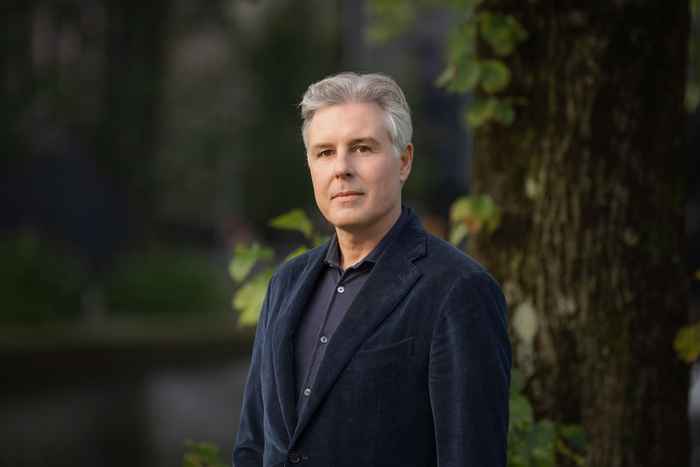Stricter supervision on the way: ‘Lawyers are under a magnifying glass’
Jan Broekhuizen appointed as professor by special appointment of legal profession
14 January 2025

Broekhuizen studied law in Rotterdam and philosophy at the University of Amsterdam. He now works at the law firm Kennedy Van der Laan in Amsterdam, specialising in financial supervision as a lawyer. The link with his chair is not far off: Broekhuizen dives into the regulation of the legal profession. 'It's an interesting time,' he says, hinting at former Minister for Legal Protection Weerwind's plans to establish a new supervisor.
In what way does your background in the legal profession influence this chair?
'I come from the context of large law firms. As a result, I also bring a specific perspective. The Dutch Bar Association (NOvA, ed.) sets rules for lawyers. But in addition, you have the offices where the lawyers work. They must also comply with anti-money laundering rules, for example.
Do you mean that law firms should also be better regulated?
'You might well think about that. After all, the firm's strategy and organization affect how lawyers conduct business. How a lawyer chooses his clients is partly determined by the structure of a firm. When you think about supervision, you also have to consider the requirements you place on a firm.'

Several incidents have caused politicians to rethink supervision
Why does the legal profession need a new regulator in the first place?
'Former Law Minister Weerwind wanted to strengthen the supervision of the legal profession. Supervision is now the task of local bars. Professionalisation, in this case, may require centralization. Cases that come to light can then be addressed more uniformly at the national level. Several incidents have caused politicians to rethink supervision. A few years ago, for example, millions in fraud by a notary was discovered at law and notary firm Pels Rijcken. Besides these incidents, there is also a general idea that there could be better supervision of lawyers. That development comes in the wake of the same idea in other sectors, such as the banking sector, after the credit crisis.'
Is centralizing supervision a good idea?
'It is good that there will be better supervision. The creation of a central supervisor means that specific tasks of local deans, such as supervising and possibly handling complaints, will be assigned to the national supervisor. You also have to rethink the role of local deans in the system. It is also essential that deans and supervisors are embedded locally and are recognizable and accessible to local partners, such as courts. It's now a fragmented system that needs to be rethought. But there are other challenges: the impact AI has on toga professions or questions around lawyers' social responsibility. For example, should they engage with clients who conduct environmentally polluting activities? The legal profession is under a magnifying glass. We need to think about the institutional structure of the legal profession as well as its core values. I hope to contribute to this in my chair.'
Thinking about the core values of the profession sounds abstract. Is it?
'The lawyer's primary core values are partiality, confidentiality and independence. That sounds abstract, but these values must always be worked out very concretely in practice. And due to concrete social developments such as the rise of AI, that interpretation can be compromised. The university is an environment that gives a place to think about the subjects.'
What will come out of thinking about these themes after 5 years?
'The NOvA will review the rules of conduct for the legal profession. I can imagine contributing to that review from the chair. Perhaps, together with colleagues within the UvA, I will develop ideas on how AI can be given a place in legal practice. In any case, it is a chair that is intended to advance thinking about the regulation of the legal profession and build a bridge between the university and the Dutch legal profession. I believe that is what also makes the work fun.'